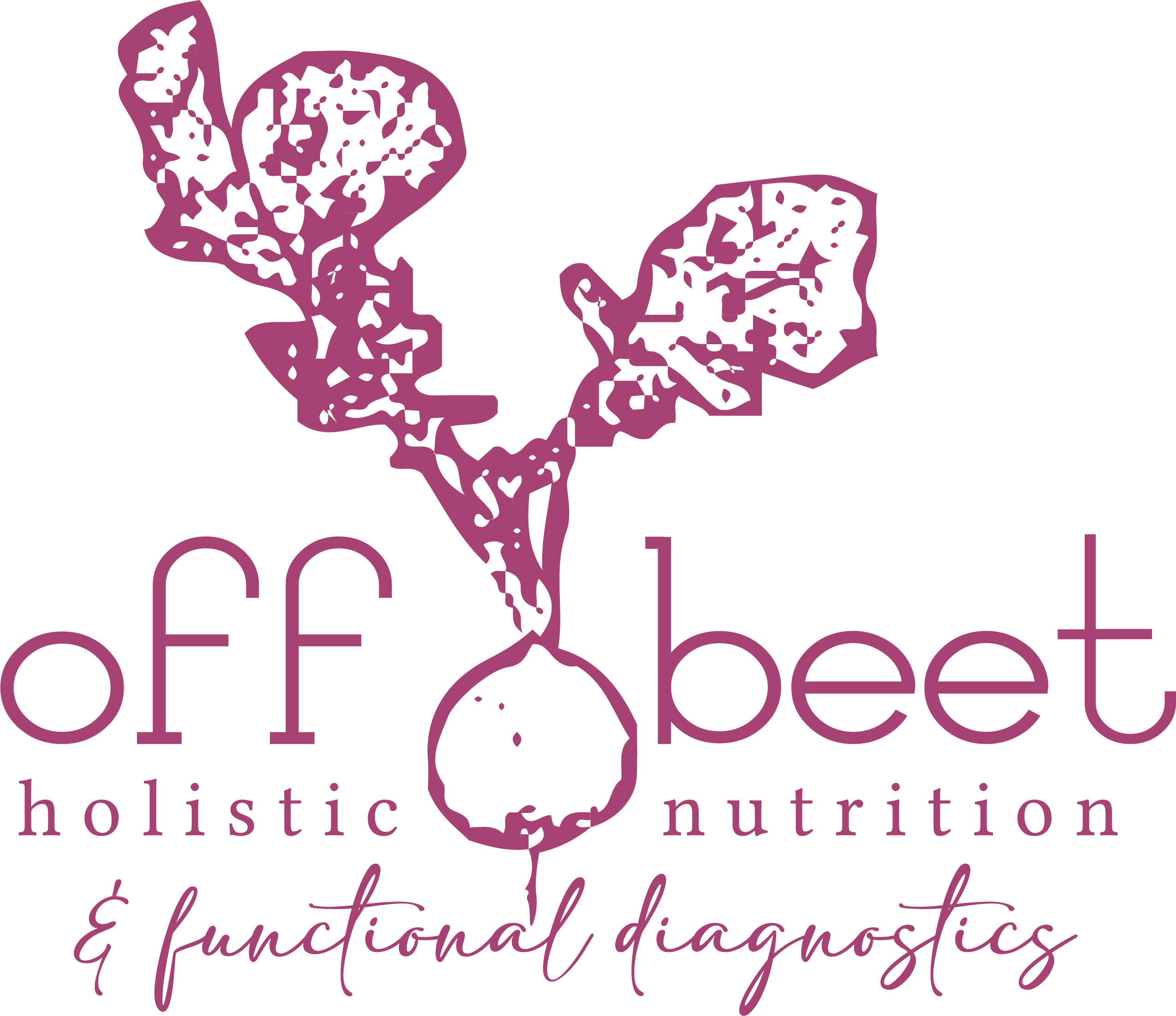What are anti-nutrients? You may have heard this term circulating the internet, demonizing things...
What’s the deal with the MTHFR gene and How do I Get Enough Folate?: A Functional Medicine Perspective
What’s the deal with the MTHFR gene and How do I Get Enough Folate?: A Functional Medicine Perspective
Have you ever heard of MTHFR and wondered what it means—or if it could be affecting your health? From fertility to fatigue, anxiety to detoxification, this gene mutation may play a bigger role than you think. Here’s what you need to know from a functional nutrition perspective.
What Is MTHFR?
MTHFR stands for methylenetetrahydrofolate reductase, an enzyme that plays a crucial role in how your body uses folate (vitamin B9). It’s especially important in a process called methylation, which is involved in:
- Detoxification
- Hormone balance
- DNA repair and synthesis
- Neurotransmitter production (like serotonin and dopamine)
- Cardiovascular health
Certain variations (polymorphisms) in the MTHFR gene—most commonly C677T and A1298C—can reduce this enzyme’s function, making it harder for the body to process folate and other key nutrients.
Why Does This Matter?
When methylation is compromised, it can contribute to a wide range of symptoms and conditions, including:
- Fatigue or low energy
- Anxiety, depression, or mood imbalances
- Infertility or pregnancy complications
- Hormonal imbalances
- Poor detoxification
- Elevated homocysteine (a cardiovascular risk factor)
Functional Medicine Approach to MTHFR
Here's how we support MTHFR naturally:
- Nutritional Support
We always want to choose foods first. Although it has become increasingly popular to supplement methylated forms of B vitamins, some people may actually be worsening the problem with this form (explained further below), so focusing on whole, real foods is the way to go. When someone does know their methylation ability and requires supplementation, we focus on active forms of B vitamins like methylfolate and methylcobalamin (B12) instead of synthetic folic acid. This is particularly important in pregnancy. Taking synthetic forms actually can worsen overall health if not careful! - Detox Pathway Support
Because MTHFR variants can impair detoxification, supporting the liver is key! We’ve actually seen bigger benefits from choline + betaine supplementation that helps absorption of b vitamins for those with Mthfr than from just methylated supplementation alone. - Gut Health Optimization
Since the gut plays a major role in nutrient absorption and inflammation, healing the gut can enhance methylation capacity. This includes focusing on the mucosal barrier specifically. Bone broth, collagen, l-glutamine, and histamine quenching antioxidants are key here. - Lifestyle Modifications
Stress, sleep, and environmental toxins can worsen MTHFR-related issues. A functional plan includes holistic changes that promote long-term wellness.
🚫 Why Methylated Folate Might Be Harmful for Some People
1. Overstimulation of the Nervous System
- Methylated folate ramps up methylation, which increases production of neurotransmitters like dopamine, serotonin, and norepinephrine.
- For sensitive individuals, this can lead to:
- Anxiety or panic attacks
- Insomnia
- Racing thoughts
- Irritability
Especially if their nervous system is already dysregulated, adding too much methylation too fast can tip things out of balance.
2. Imbalanced Cofactors
- Taking L-5-MTHF without adequate B12 (especially methylcobalamin or adenosylcobalamin) can cause or worsen neurological symptoms.
- If other cofactors like B2 (riboflavin), B6, magnesium, and choline are deficient, methylation won't function properly, and symptoms can arise.
3. “Methyl Trap” Effect
- In B12 deficiency, methylated folate can get "stuck" and not be used properly, a situation known as the methyl trap.
- This can worsen homocysteine buildup and cause fatigue, mood swings, and cognitive issues.
4. Histamine Intolerance or Mast Cell Activation
- Methyl groups can increase histamine clearance, which sounds good—but for some people, rapid histamine dumping triggers:
- Hives
- Headaches
- Gut symptoms
- Heart palpitations
Especially in those with Mast Cell Activation Syndrome (MCAS) or histamine intolerance, this can backfire.
5. Detox Symptoms
- Methylation is involved in phase II liver detoxification.
- If detox pathways are congested or the person has heavy metal toxicity, introducing methyl donors can mobilize toxins faster than the body can eliminate them, causing:
- Fatigue
- Brain fog
- Skin rashes
- Nausea
So what do we do?
It’s best to:
- Test instead of guess! Especially for those trying to conceive, testing genetics and/or B vitamin status through an organic acids test is key. Also testing hormones with the DUTCH urine test allows us to see how methylation is functioning!
- Supporting gut and liver detox before supplementing.
- Use non-methylated folate sources if needed (e.g., folinic acid or food-based folate). My favorite is the newer “whole food folate” by Standard Process. Can be purchased here:
- Add in Betaine + Choline to support methylation.
- If choosing methylfolate supplement, start with very small doses (like 200 mcg of L-5-MTHF) if unsure of methylation status and track symptoms.
Best option? Eat your Folate:
Top Whole Food Sources of Folate:
🥗 Leafy Greens & Cruciferous Vegetables
- Spinach, kale, broccoli, Brussels sprouts, asparagus, and collard greens are among the top natural folate sourcesen.wikipedia.org+10ods.od.nih.gov+10eatingwell.com+10.
- According to the USDA, 100 g of cooked asparagus contains about 149 µg folate, and spinach around 146 µg .
🌱 Legumes
- Lentils and chickpeas are folate powerhouses: 1 cup of cooked lentils offers around 358 µg (90% DV)healthline.com.
- Beans (like black, kidney, and black‑eyed peas) also contribute significantlynal.usda.gov+6healthline.com+6ods.od.nih.gov+6.
🍋 Fruits
- Beets (148 µg per cup), citrus fruits (oranges: 55 µg per orange), bananas (~23 µg), and papaya are all natural folate sources healthline.com+1health.com+1.
🥑 Avocado & Seeds
- Avocados offer approximately 81 µg folate per 100 g en.wikipedia.org.
- Seeds such as sunflower seeds also contain notable amounts (e.g., 238 µg per 100 g)en.wikipedia.org+11en.wikipedia.org+11healthunit.org+11.
🍳 Animal Sources
- Beef or chicken liver is exceptionally rich (e.g., chicken liver: 578 µg per 100 g) en.wikipedia.org.
- Eggs provide moderate folate (~44 µg per 100 g) en.wikipedia.org+6healthline.com+6ods.od.nih.gov+6.
Pro Tip:
Folate is sensitive to heat and light, so try to eat some of these foods raw or lightly steamed to preserve nutrient content.
Recipe Idea:
Warm Lentil & Roasted Beet Salad
- 1 cup cooked lentils (green or black)
- 1/2 cup roasted beets, diced
- 1/2 cup steamed broccoli or Brussels sprouts
- 2 cups arugula or mixed greens
- 1 Tbsp extra virgin olive oil
- 1 Tbsp lemon juice or apple cider vinegar
- Sea salt, pepper, and fresh herbs to taste
👉 Why it works: Lentils and beets offer a double dose of folate and fiber, while cruciferous veggies support methylation and detox.
Whole Food Folate Sources:
- NIH Office of Dietary Supplements – Folate Fact Sheet
https://ods.od.nih.gov/factsheets/Folate-HealthProfessional - USDA FoodData Central – Nutrient database for foods like spinach, lentils, liver
https://fdc.nal.usda.gov - Healthline – 15 Healthy Foods High in Folate (Folic Acid)
https://www.healthline.com/nutrition/foods-high-in-folate-folic-acid
⚠️ Risks of Methylated Folate:
- Ben Lynch, ND – Seeking Health / "Dirty Genes"
Explains overmethylation symptoms and MTHFR pathways
https://www.seekinghealth.com - Dr. Amy Yasko – Genetic testing & methylation support guides
https://dramyyasko.com - Chris Kresser, L.Ac – Methylation and Folate
https://chriskresser.com/folate-vs-folic-acid/
MTHFR.net (Dr. Ben Lynch’s educational site)
https://mthfr.net
"Information in this newsletter is based on studies published in peer-reviewed journals such as the Journal of Physiology and Pharmacology, Endocrine Reviews, and Cochrane Database of Systematic Reviews."
Thinking about digging deeper into your own health?
Book a free 15 min phone call with me to see if functional nutrition is the right thing for you!
Always rooting for you!
- Allie CHN, FDN-P
Allie is a Functional Diagnostic Nutrition Practitioner located in Birmingham, Alabama. She helps women across the country online and in her hometown office dig deeper into their root health issues and find holistic healing!
No information in this blog should be considered medical advice. I do not diagnose or treat disease. Taking any recommendations should be considered an opt-in model of self care.




